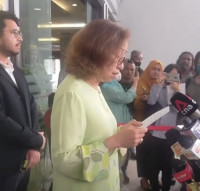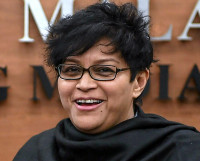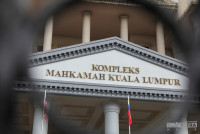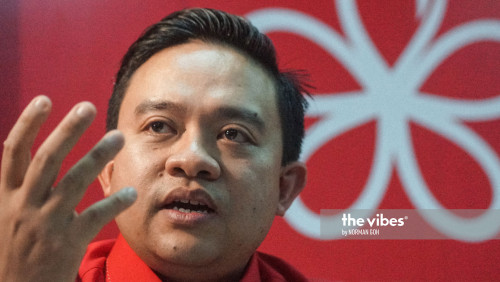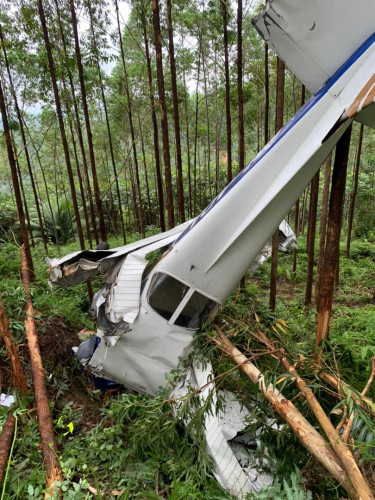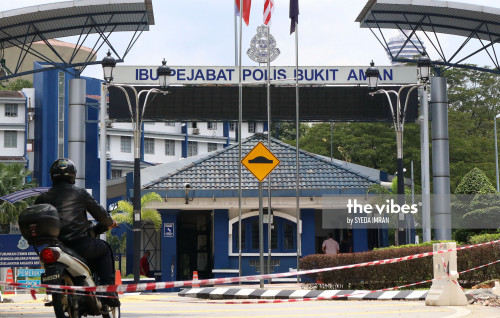THIS initiative is aimed to profess why the trying of facts must be removed from the domain of the judiciary as a universal solution to clear the backlog of cases – leaving the judiciary to deal with law and related constitutional obligations only.
Social justice in Malaysia with a similar constitutional framework as India generally means fair distribution of wealth, opportunities, and privileges for the benefit of the public.
The principles extend to many areas or segments like education, health care, employment law, and many others inclusive of fair, just, expeditious, cost-effective disposal of all cases in the courts.
The principles are protected by several articles of the constitution, in particular those related to fundamental rights and grievance mechanisms related to rule of law.
A free copy on the subject is available at www.janablegal.com, Social Justice: Constitutional Oath, Rule of Law And Judicial Review - Malaysian Chapter, with a review from eminent jurists from Malaysia and other countries
The courts’ existence under our constitution is primarily aimed at them being arbiters for public law issues and they are only required to play a supervisory role in private law matters. There is no constitutional obligation for the courts to be the trier of facts which technically can be sourced out to others such as arbitrators or jurors.
The emergence of the jury system in England for civil and commercial matters and also criminal matters is evidence for the statement that courts need not indulge their time on trying facts. However, over the years the judiciaries in almost all countries have also taken the role as triers of facts, thereby creating case backlogs.
It is difficult for social justice principles to flourish in a country where the public does not subscribe to principles related to ethics, or the legal industry itself suffers from ethical deficit and/or are weak in the knowledge of rule of law.
Countries which are known to be ranked high in corruption index ratings by international organisations in most cases indirectly reflect that their public and legal industry suffer from an ethical deficit.
Consequently, the rule of law will not function smoothly and political interference in the legislative process as well as judicial decisions will lean towards rule by law inconsistent with the constitutional framework of the country.
There is now a compelling argument to say that the trying of facts in the dominance of the courts must be removed as per the Magna Carta guarantee as given in the year 1215 by the king of England – who had endorsed that trying of facts will be done only by peers (selected independent and impartial public), and the law will remain in the domain of the judiciary.
This paved the way for the jury system for civil, commercial, and criminal cases. Most countries which have removed the jury system in full are found to be high in corruption index rankings and also, the backlog of cases is becoming endemic.
I have presented a paper recently at the BAIAC Conference at Singapore under the caption ‘University cum Court and Jury Mode Criminal Trials’ on this point.
It must also be noted that social justice by dispute resolution through the court system is becoming a failure in most Commonwealth countries as evidenced by the backlog of cases.
In addition, it also increases medical care costs for the government arising from litigation stress on the parties, lawyers, judges, and many more.
No government has studied this aspect, which is a social justice issue. In some countries the backlog is claimed to be 30 years or more for the dispute to be finally disposed of. This is primarily due to the government in most countries not providing adequate resources to increase the judicial machinery to provide the service as primarily intended.
It is my observation that in most Commonwealth countries, government spending on judicial machinery and its strength is merely in arithmetical proportion when disputes in courts have risen by geometrical proportion.
It is not uncommon to find critics accusing the judiciary of backlogs, and also not providing grounds for judgments. A common sense and jurisprudential approach is to accept that the judiciary’s workload on trying facts by magistrates or judges must be removed to clear backlogs, and it will also be prudent for the institutional reform committee for the judiciary of any country suffering from backlogs to act swiftly.
Whilst I was a sitting judge, I realised the problem. I decided to provide a global solution to clear the backlog. I came up with a concept and methodology to clear the backlog referred to as “University cum Court Annexed Arbitration.”
I discussed the concept with Eng Seng Ho who was then a director of the Middle East Institute at the National University of Singapore. He invited me to Singapore and facilitated me to do a research survey and get the feedback of stakeholders in justice and arbitration.
After a positive note from Singapore, I discussed the matter with Lincoln’s Inn Alumni, Malaysia as well as others including eight universities offering law in Malaysia. They were all supportive and a booklet setting out the concept and the survey results was published in 2018.
An ex-president of the UK Supreme Court reviewed the booklet and said it was an ingenious concept. After His Lordship’s testimony, I decided to substantially spend my entire retirement years anchoring the concept in countries facing a backlog of cases.
I was also blessed with a team of lawyers and jurists who had agreed to walk this charitable journey to disseminate the knowledge and methodology to implement affordable arbitration for civil and commercial matters filed in courts. The Covid-19 era has stalled our progress substantially.
We were fortunate when MAHSA University pro-chancellor Tan Sri Haniffa Abdullah (now a senator) agreed to provide infrastructure support for a pilot project to demonstrate the practical application of the concept as part of the university’s social justice programme.
Over the years, I have also developed a methodology to train a tsunami of arbitrators in a one-day programme subject to strictly reading the recommended articles prepared by me and published in CLJ.
The methodology referred to as “JANAB’s Arbitration Moot Court And Award Writing” was recently tested with the support of the shariah judiciary and my team from Affordable Arbitration And ADR Chambers PLT.
It is capable of training in a one-day programme all members of academia, lawyers, and others within 100 days on instalment basis if the government is prepared to endorse the concept and first create the affordable arbitration pool.
Two former Malaysian Bar presidents as well as lawyers and eminent jurists attended the one-day programme as assessors and wrote an award and approved the methodology. It was reported in the media.
My team has written to the prime minister to consider implementing the affordable arbitration proposal, which was copied to at least five relevant ministers and MPs.
My concept is a simple and straightforward jurisprudential solution to backlog. It is modelled to empower academia, lawyers, and others to assist in clearing the backlog of civil and commercial cases where parties to the dispute consent to refer to affordable arbitrators with the leave of the court.
I hope the Madani policymakers take note of the letter to the prime minister and swiftly act on it to clear the backlog as well as reduce medical care costs on the government arising from litigation stress. – The Vibes, April 29, 2023
Prof Datuk Hamid Sultan Abu Backer is a retired appellate judge and professor of arbitration and dispute resolution at MAHSA University




